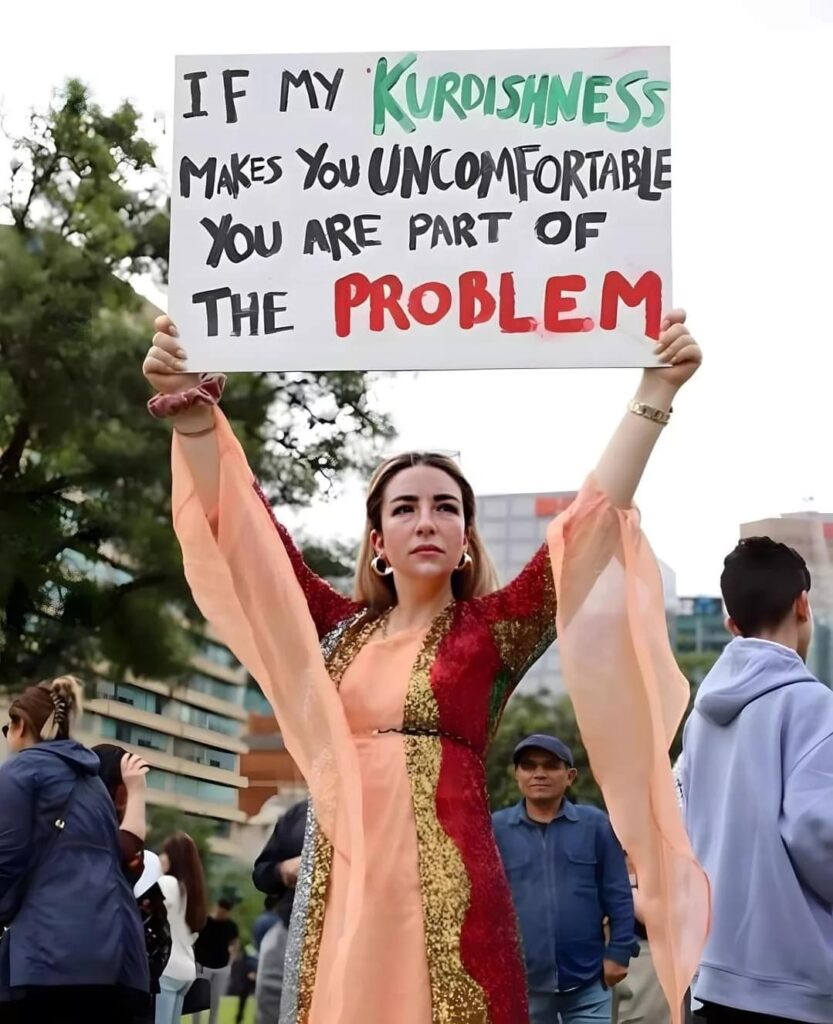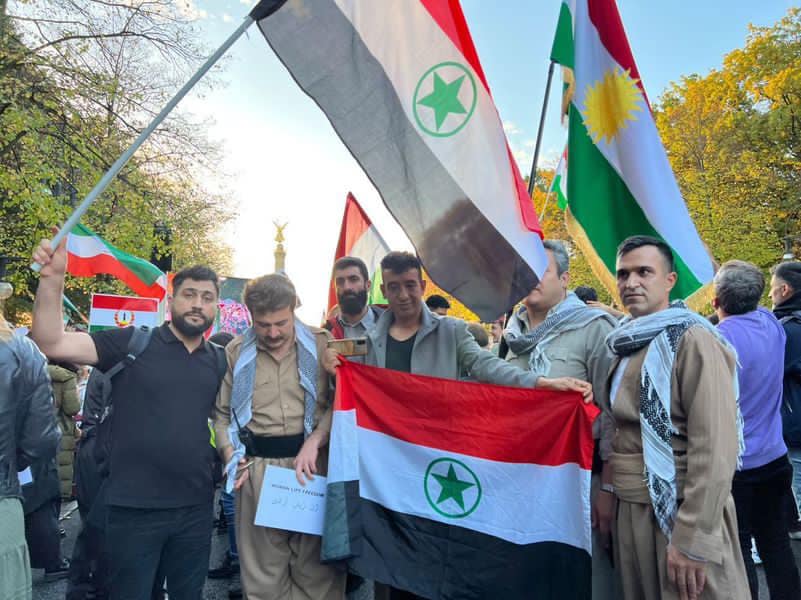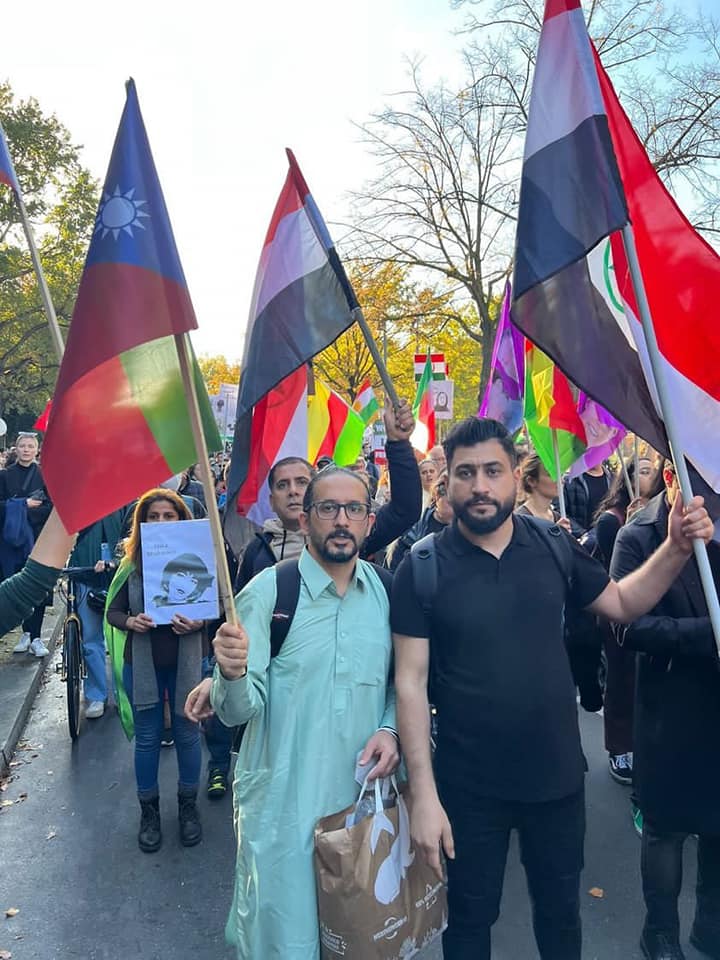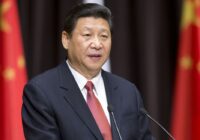Over the last century, Iran’s socio-political crises have led to more human casualties in non-Fars and non-Shiite areas. According to the reports of human rights organizations such as Hengaw Organization for Human Rights, Kurdistan Human Rights Network, Iran Human Rights Monitor, and Human Rights Activists News Agency, hundreds of people including children were killed, and thousands injured and arrested during the recent protests in Iran. The vast majority of those killed, about 80%, were Kurd, Balouch, or Mazen. Non-Fars populations — in particular Kurds, Turks, Baluchis, and Arabs — tend to die in far greater numbers during political crises over the last century.

Crimes Against Humanity
The Islamic regime repeatedly continues to perpetrate crimes against humanity. Social diversity and individual and group agency are not taken into account in Iran’s political structure. This has led to a small group of power holders in a government that does not respect international law or human rights. Sadly, the international community, including the UN and EU, give legitimacy to this oppressive government.
The Dirty Secrets About How Reza Shah Destroyed Iran
The international community has not been listening to the plurality of voices that make up the diverse fabric of Iran. The history of widespread and bloody uprisings continues to be ignored. The voice of the people of Iran does not matter. The rights of the diverse groups are neglected.

The recent uprising, with its new multidimensional and transnational characteristics and the widespread support for Iranians abroad, has finally caught global attention. It is now time for EU countries to show that they truly support democracy, and do not just act out of pure self-interest.
In the streets, Iranians are chanting: “We don’t want an Islamic Republic,” “Down with the dictator”, “Death to the tyrant, whether king or leader.” The message is clear: people don’t want an undemocratic government. The Islamic regime now has no legitimacy. The EU and UN need to be talking not to the regime but to the people of Iran. And these people don’t just include Shiite Fars men.
International Community Must Act
After the 1979 revolution, the international community — instead of recognizing the people’s resistance — recognized the mullahs instead. It cannot repeat that mistake. Until there exists a truly democratic system, Iran’s government should not be considered the representatives of all people. The international community must engage with representatives from various groups that comprise Iran. Together, these groups are shouting slogans that originated from Kurdish society: “Jin, Jiyan, Azadi,” (woman, life, freedom).
Revolution Erupted in Iran Because of Mohammad Reza Shah
Unlike the slogans of previous protests, Jin, Jiyan, Azadi has united all oppressed social groups and became their rallying cry. While women and sexual minorities are the most oppressed segments of Iranian society, Iran has become a prison for all its people. All except for the tiny ruling elite, people now see that only by dismantling dictatorial systems, both patriarchal and Islamic, will they form a democratic regime.
The international community must target the Islamic regime itself, especially its representatives abroad. It must isolate the Iranian government, withdraw recognition to the regime and work towards its downfall.

The EU should support the Iranian opposition, especially parties of ethno-national and religious minorities. Non-Fars ethno-nations, when combined in fact constitute the majority of people in Iran. While some dissident groups such as Mujahedin-e-Khalq have a significant presence in Europe and the United States, they need support to improve their ground game in Iran.
Unlike Fars opposition groups, these minority parties hare no common interests with the Iranian regime. For example, there have been several times that Kurds in Rojhelat (Eastern Kurdistan in Iran) have gone on strike. They heed the call of Kurdish parties that are illegal in Iran. The strikes show that Kurdish parties are the true representatives of their people, not Fars representatives of the Iranian state. The same is true for other ethno-nations as well.

The EU should forge together an opposition that is a coalition of minorities. Diverse democratic forces represented by organizations such as the Congress of Nationalities for a Federal Iran, a coalition of parties that include the Kurdistan Democratic Party of Iran, the Balochistan People’s Party, the Federal Democratic Movement of Azerbaijan, the Turkmen National Democratic Movement and the Democratic Solidarity Party of Alahwaz (Arabistan) among others.

Democracy is the best way forward for the freedom of the people of Iran. Therefore, the best way forward is the establishment of a government-in-exile that helps the people overthrow the oppressive Islamic regime and institute a truly free, democratic state.
The views expressed in this article are the author’s own and do not necessarily reflect Fair Observer’s editorial policy.
Support Fair Observer
We rely on your support for our independence, diversity and quality.
For more than 10 years, Fair Observer has been free, fair and independent. No billionaire owns us, no advertisers control us. We are a reader-supported nonprofit. Unlike many other publications, we keep our content free for readers regardless of where they live or whether they can afford to pay. We have no paywalls and no ads.
In the post-truth era of fake news, echo chambers and filter bubbles, we publish a plurality of perspectives from around the world. Anyone can publish with us, but everyone goes through a rigorous editorial process. So, you get fact-checked, well-reasoned content instead of noise.
We publish 2,500+ voices from 90+ countries. We also conduct education and training programs
on subjects ranging from digital media and journalism to writing and critical thinking. This
doesn’t come cheap. Servers, editors, trainers and web developers cost
money.
Please consider supporting us on a regular basis as a recurring donor or a
sustaining member.
Will you support FO’s journalism?
We rely on your support for our independence, diversity and quality.







Comment